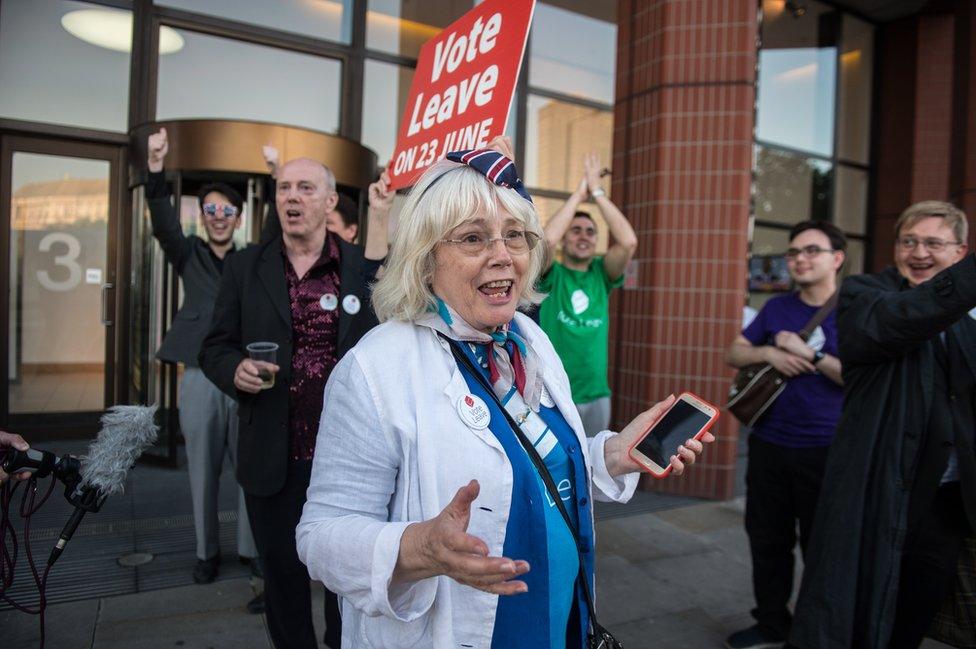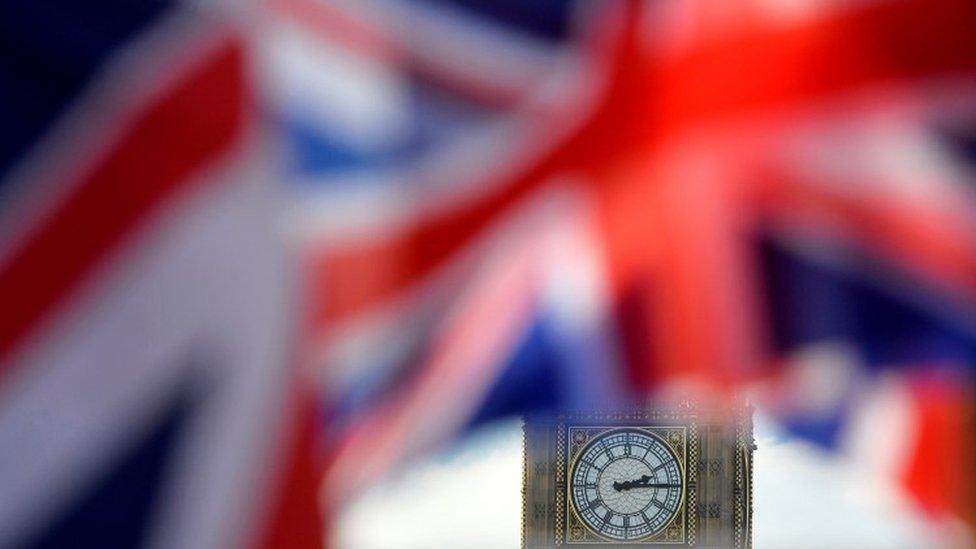Brexit: A messy divorce between two Britains
- Published

Many supporters of the Stronger In campaign were horrified by the outcome
Londoner 1 to me this morning: "It feels like we've gone to war and the whole world has gone mad."
Londoner 2 to me this morning: "There are too many stupid people here, that's why we had to have Brexit."
The British capital is in shock today. Even people who voted Leave seem rather stunned by what's happened.
It is also a country deeply, bitterly divided and it is hard, so soon after this seismic result, to see how it can easily be unified.
Half the population is giddy, half despairing. This is not just a divorce between Britain and the EU, it feels just as much like a divorce between one Britain and another.

Leave campaigners say the UK will be better off unshackled from the troubled EU economies
I was last in the UK in March, and this week I've been really struck by how much the national discourse has changed since then. The mood - on both sides - is angrier, more divided and positions are more entrenched. Did the referendum campaign create this, or just enable it?
Either way, this vote has revealed a deeper truth about the time we live in because it was a referendum, as much as anything, on globalisation itself.
Globalisation, with inexorable speed, has changed the world we live in. For all of us. Jobs have changed, the way we trade has changed, who we employ has changed and the feel of where we live has changed.
And the world has become more unequal too. In retrospect, it was perhaps inevitable that that process wasn't going to go ahead unchecked, ad infinitum.
But politicians, in Europe and the US, failed to grapple with the real life implications of this force and on Thursday a majority of Brits said "enough."
They were fed up with politicians who didn't listen to their concerns. It's no coincidence that London, which has benefited massively from the globalised financial system, voted just as massively to remain.
The question for Brits now is where does this take us? The markets plunged but that could be a temporary blip.
Donald Trump says the UK vote to leave the EU is "a great thing" as he lands in Scotland
There are plenty who believe that Britain pays too much into the EU and gets too little back and that the UK will be better off when it is unshackled from the weight of the troubled EU economies.
There are just as many economists who say Britain will be worse off alone. The truth is we don't really know how protest votes pan out.
The global implications will be fascinating. This British referendum on the EU was, if you like, the test case for this new era of populist protest. It's the first big national vote we've had in this mood. The next will be America in November.
On Friday Donald Trump congratulated Brits on taking back their country. He drew the parallels with his own campaign and made the point that people are angry, in a lot of places.
So, are enough of them angry enough to kick established politicians out in America too?

- Published29 June 2016

- Published24 June 2016
- Published10 May 2016